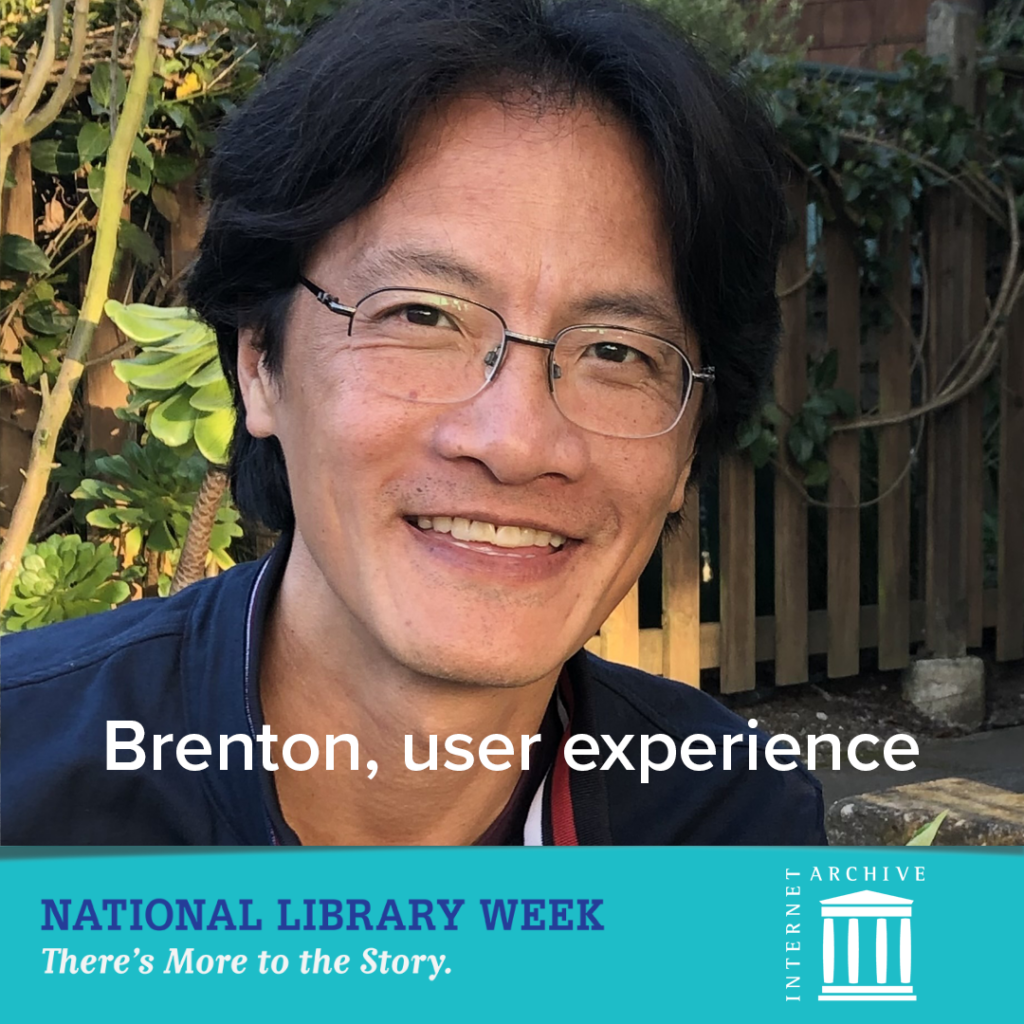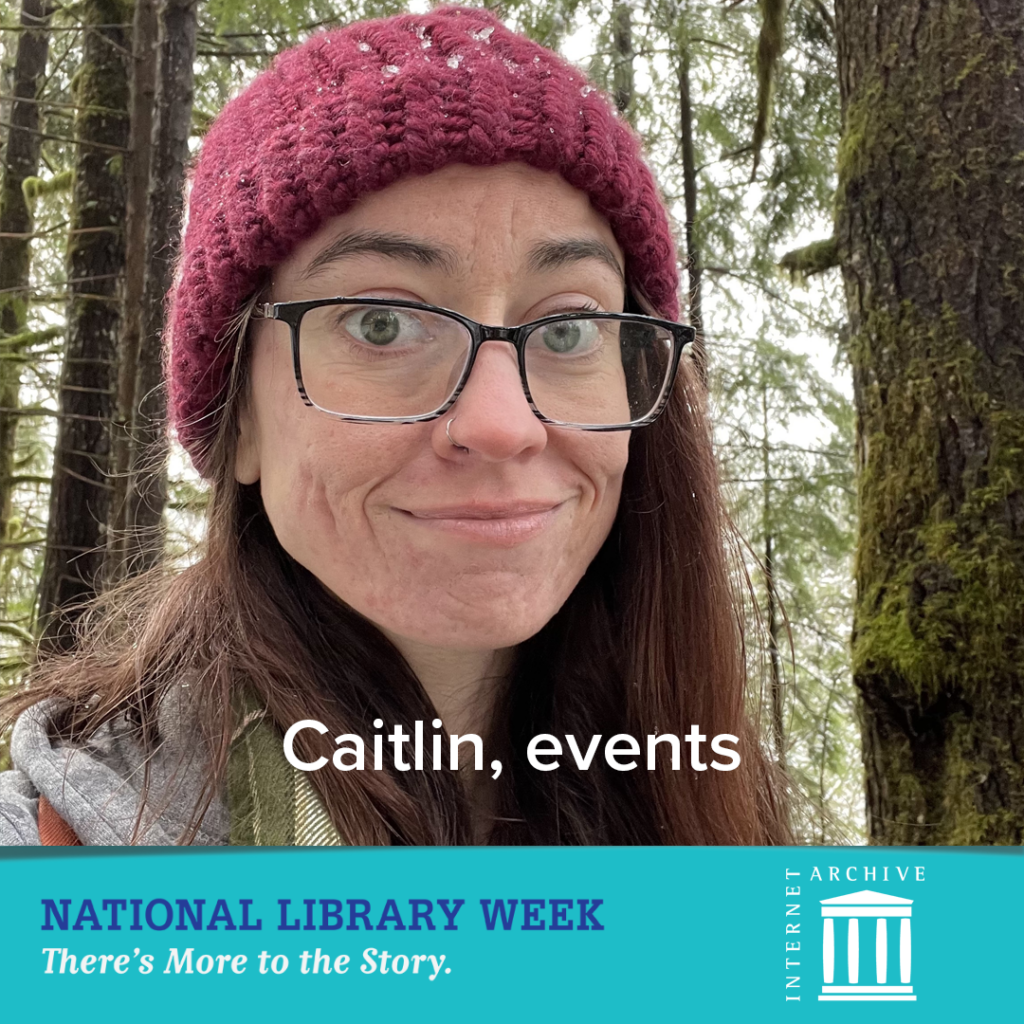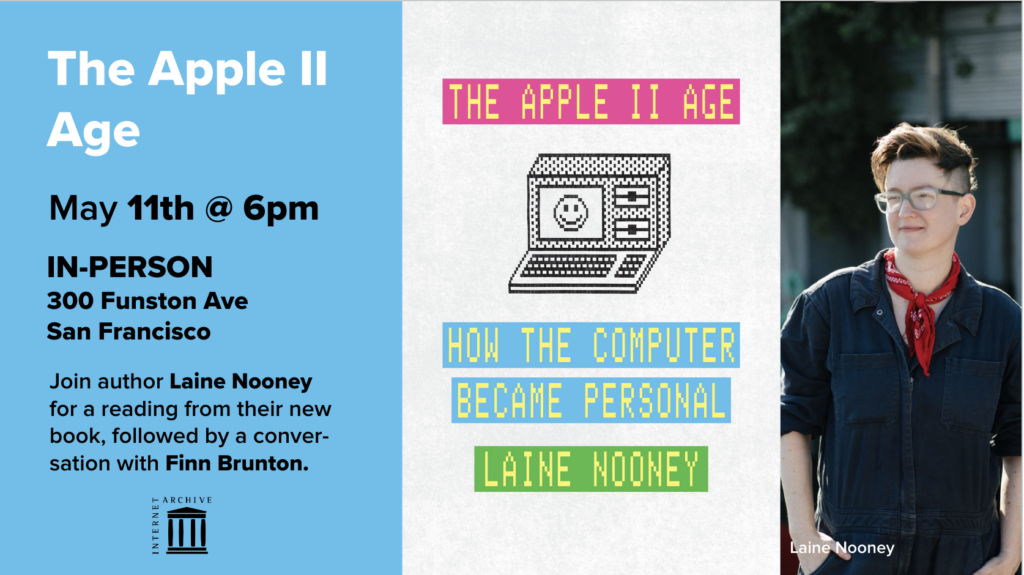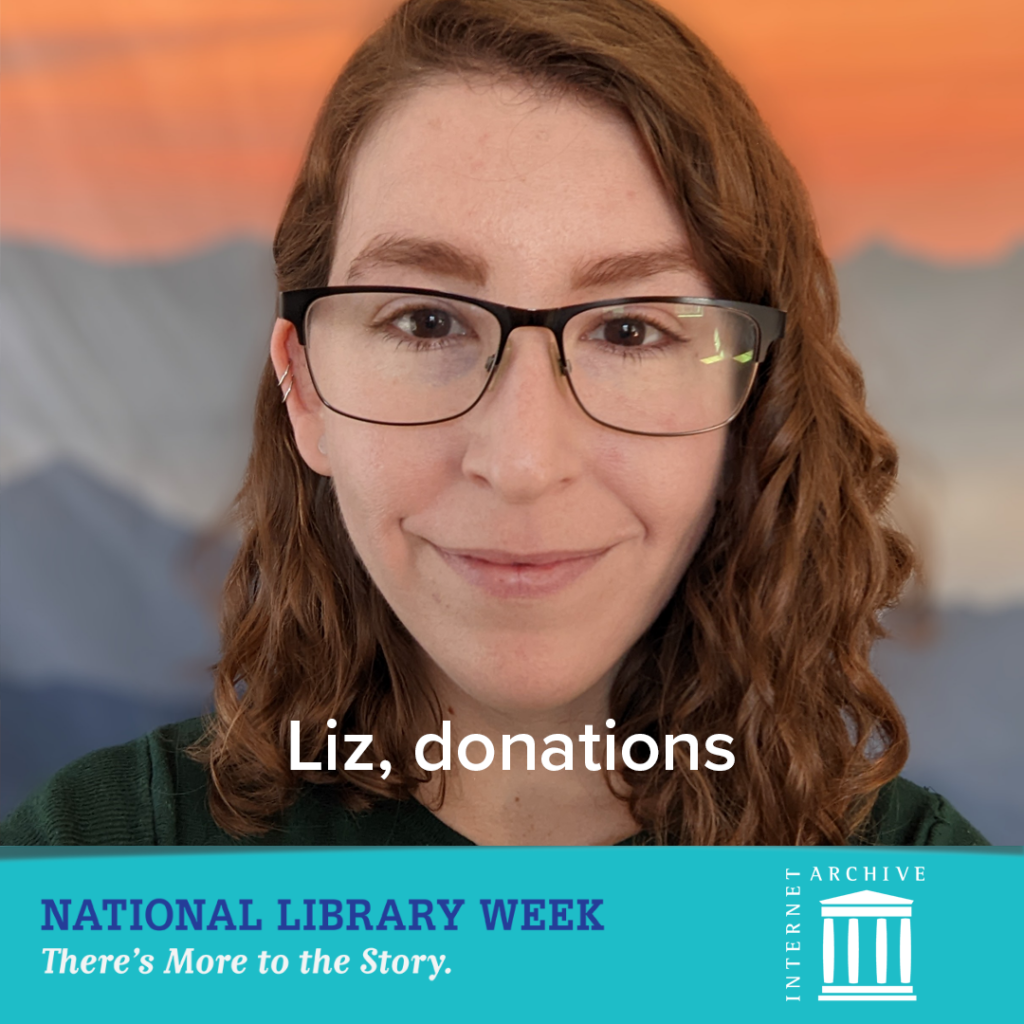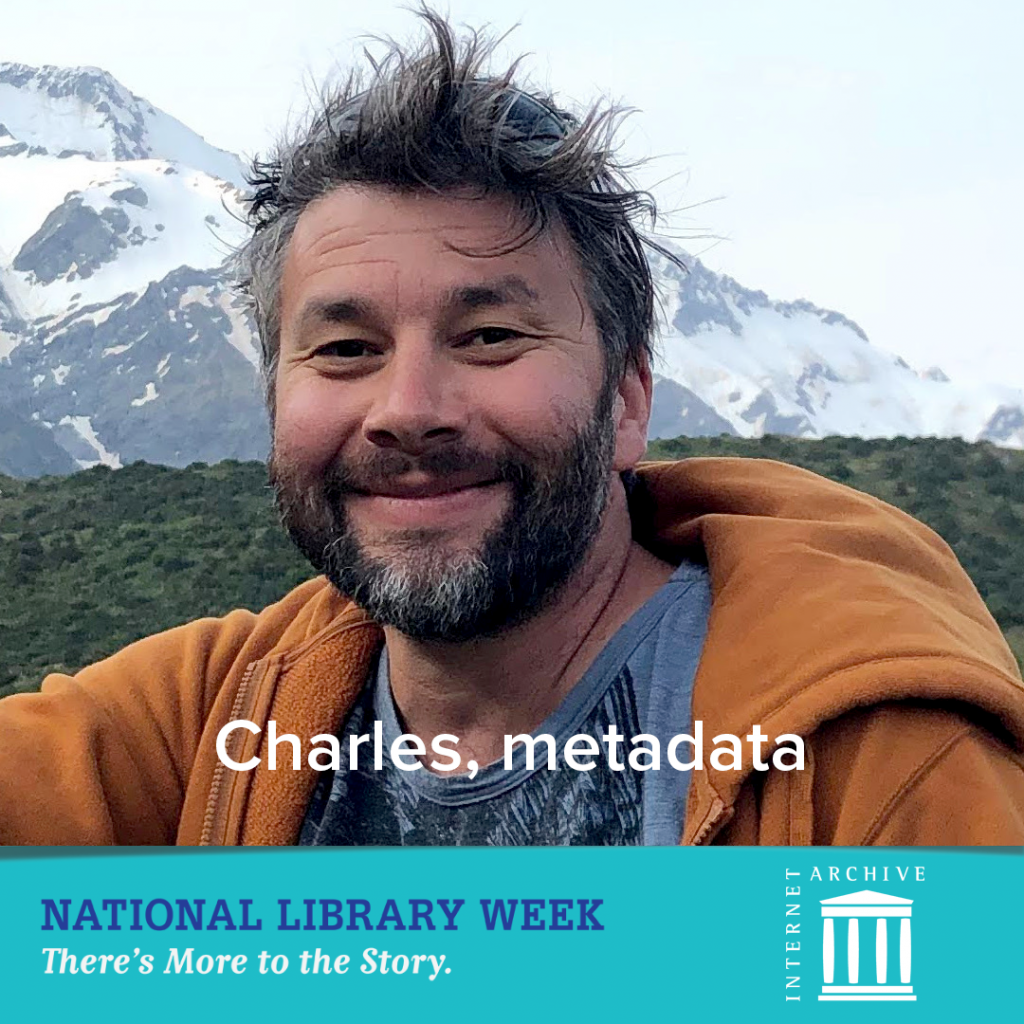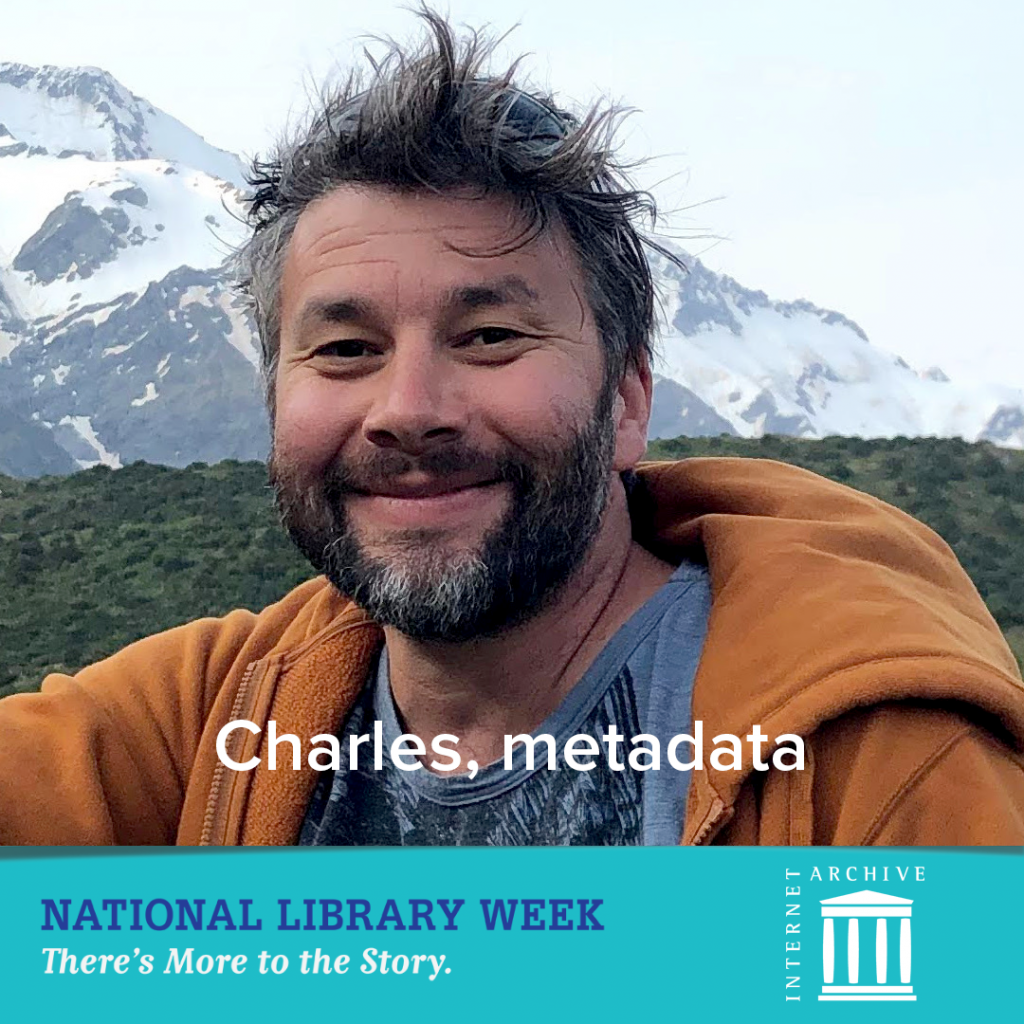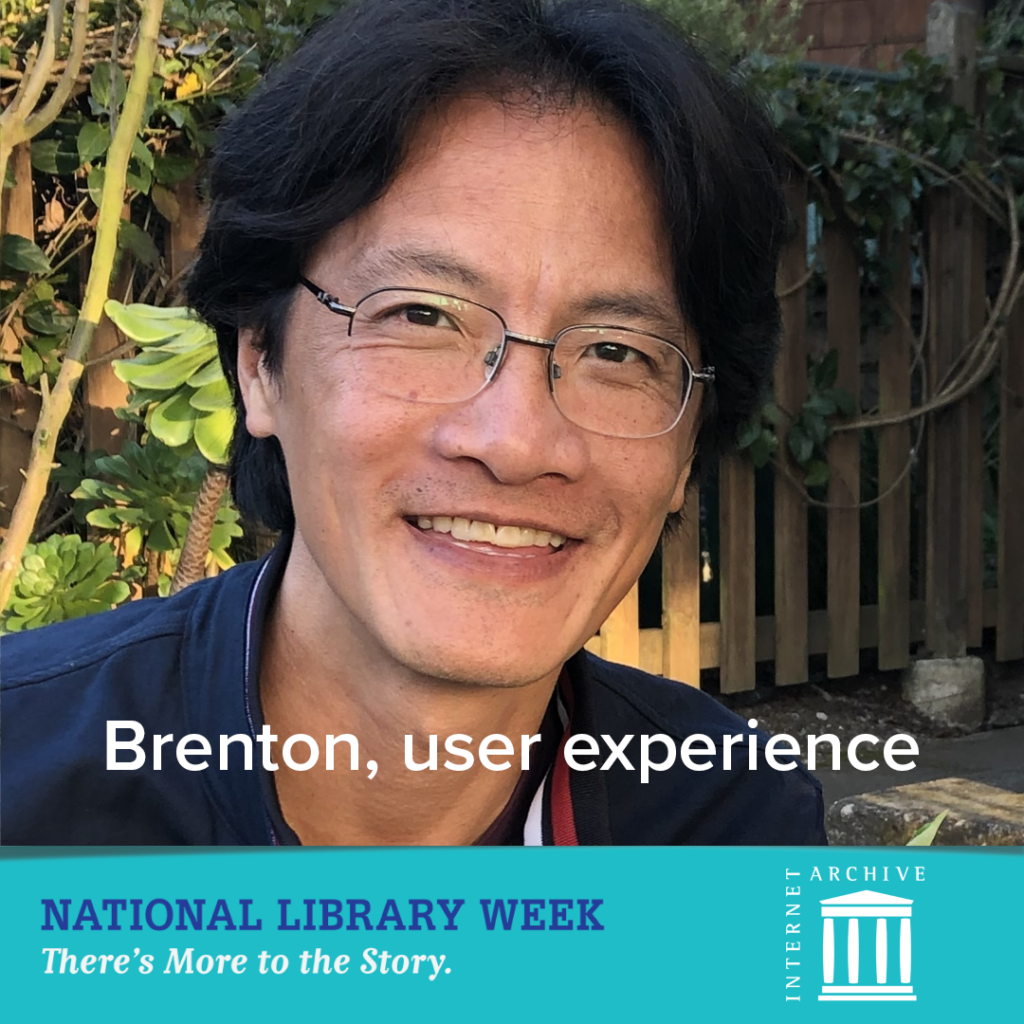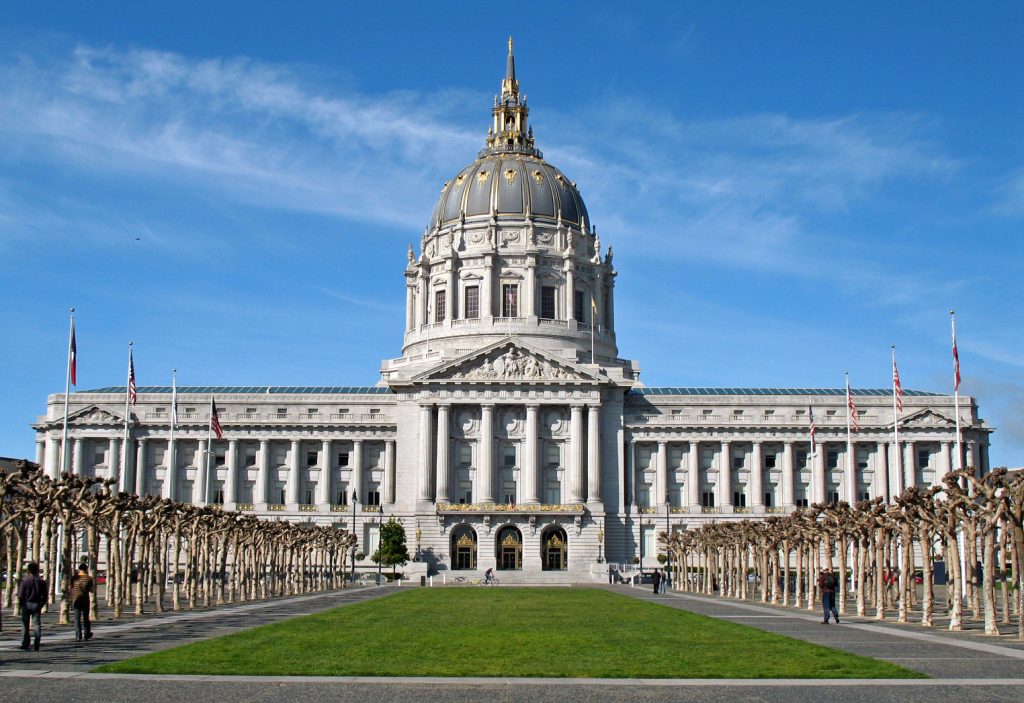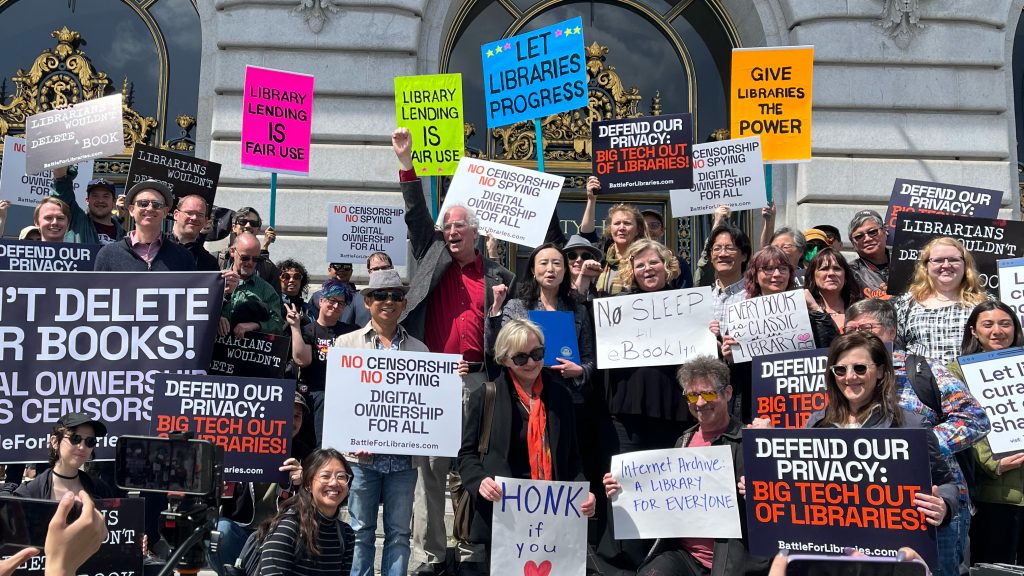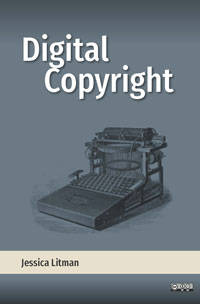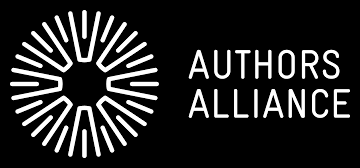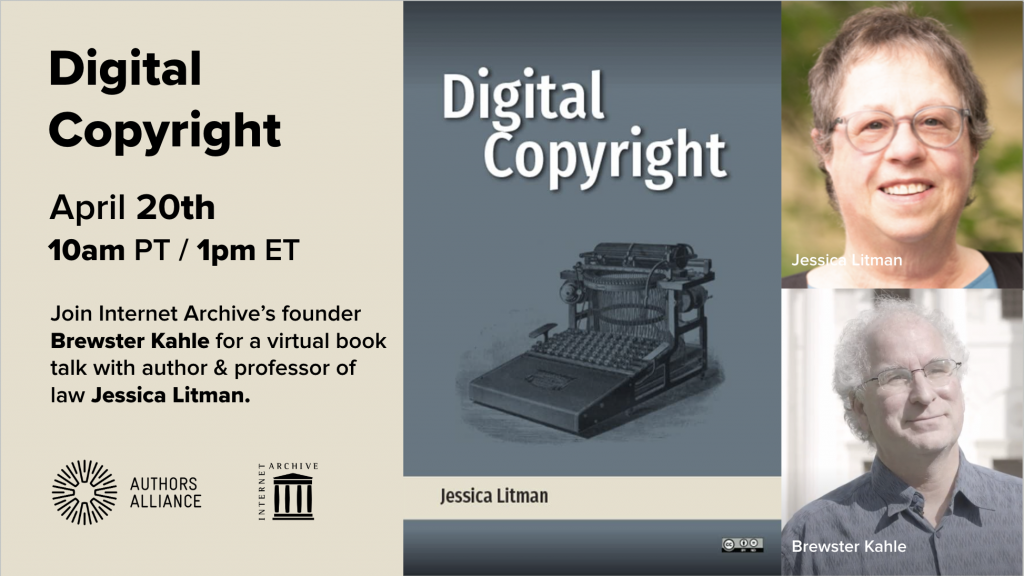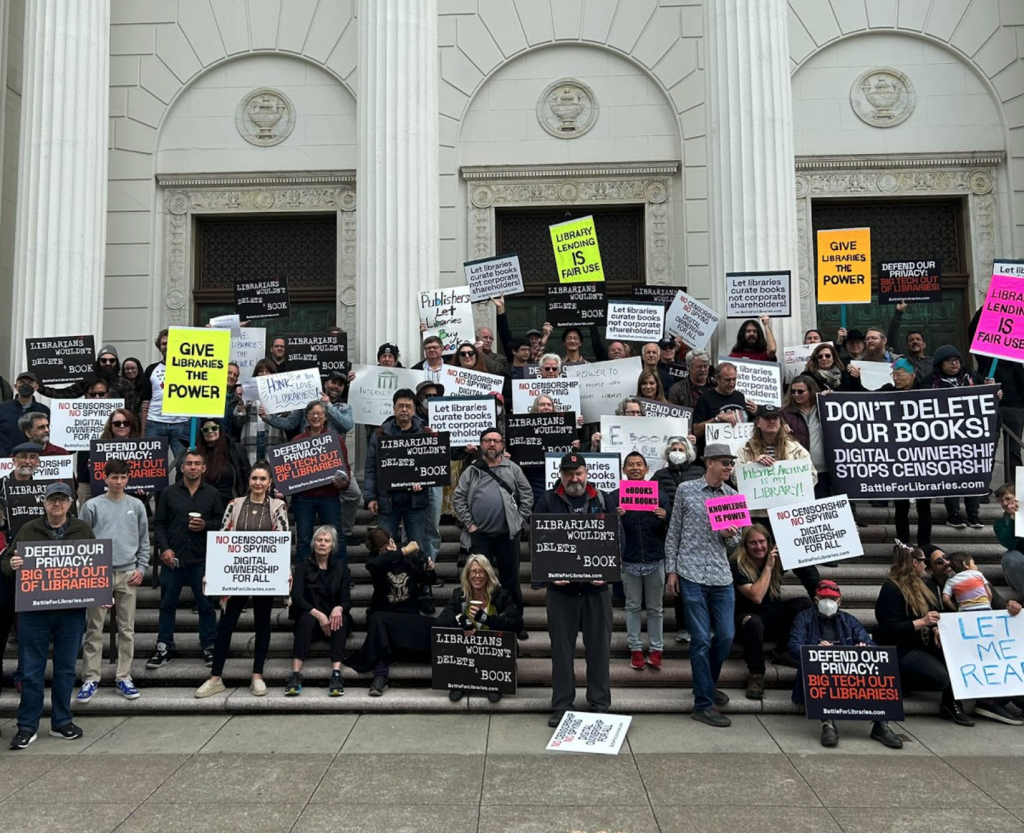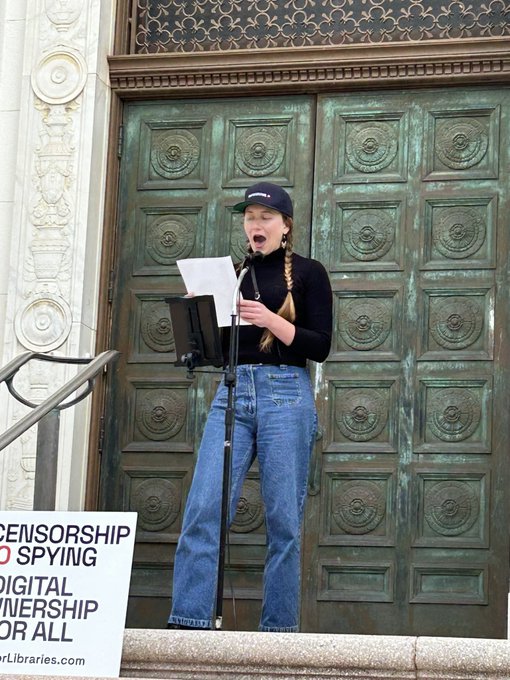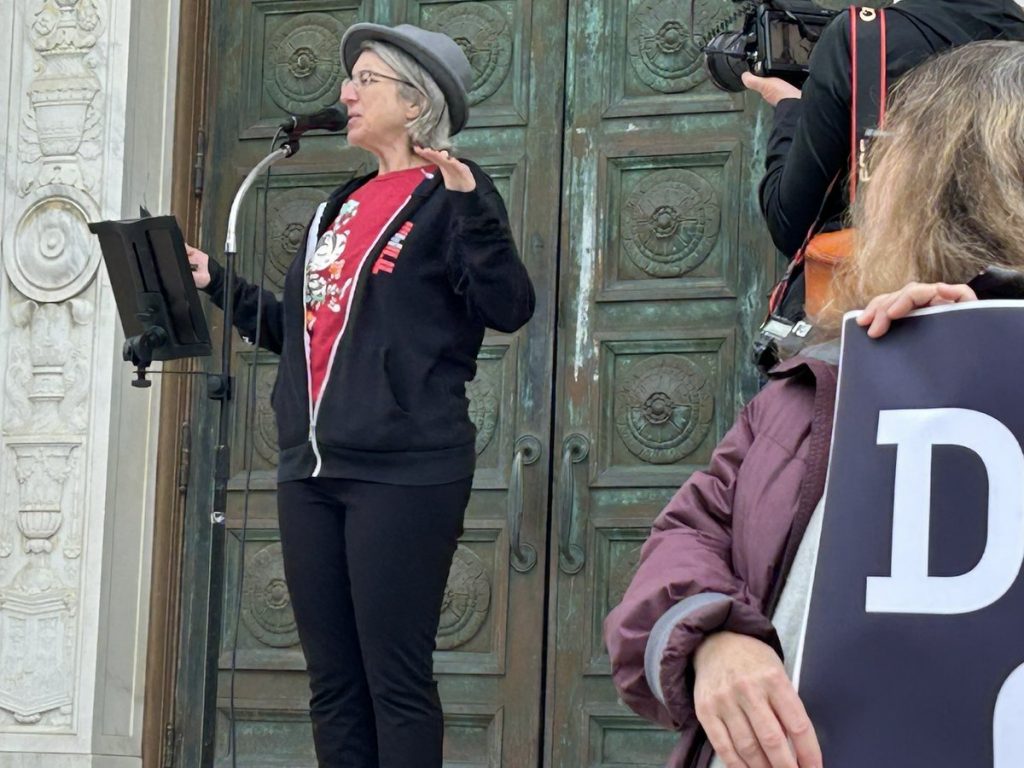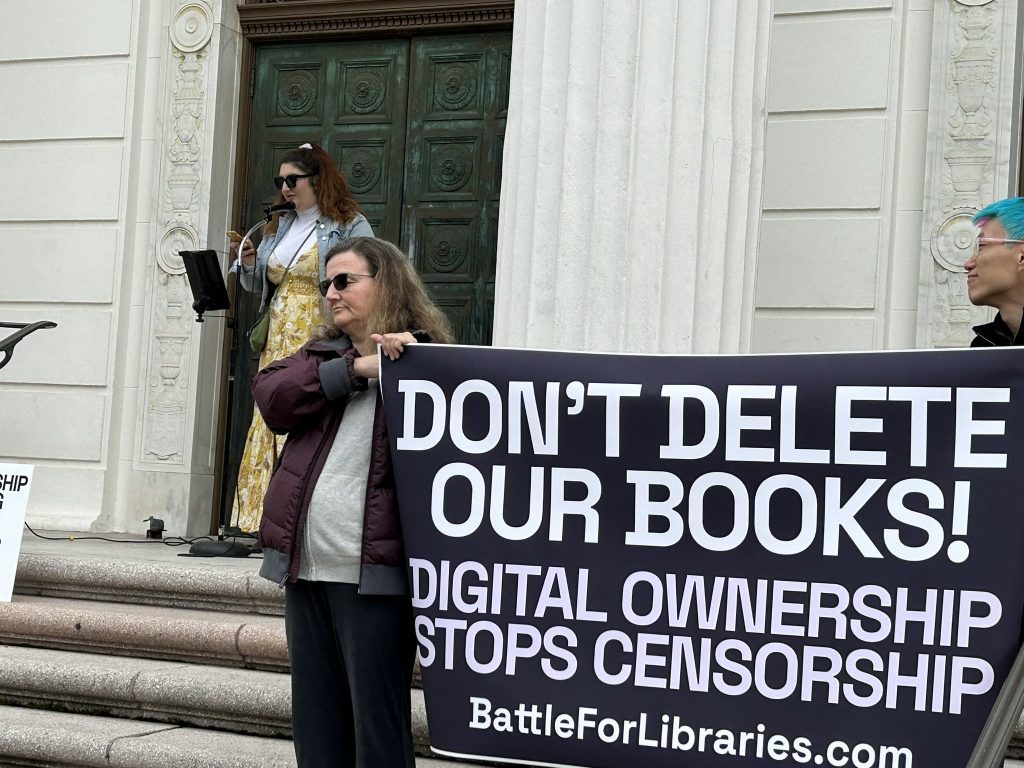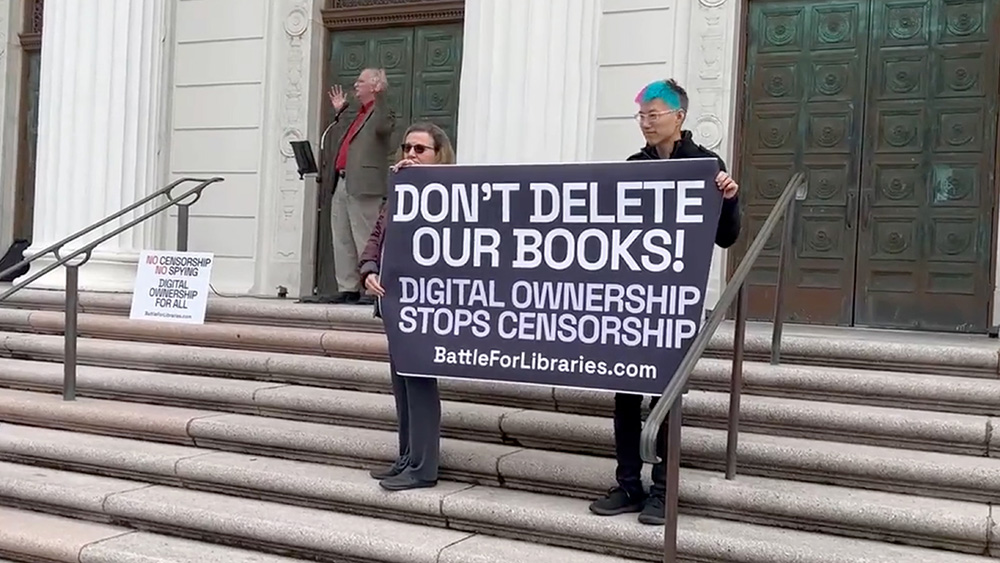To celebrate National Library Week 2023, we are introducing readers to four staff members who work behind the scenes at the Internet Archive, helping connect patrons with our collections, services and programs.
Brenton Cheng learned to program in BASIC on an Apple II Plus at age 9. His mother was one of the earliest computer programmers and his dad was a marketing consultant for technology products in Portola Valley, California. By age 12, Cheng had written a series of animated games that he put together in a hand-assembled software package. It sold about four copies.
Now, Cheng is a senior engineer at the Internet Archive, where he leads the user experience (UX) team. “Our goal is to give our patrons a great experience on the Archive.org website while making sure that under the hood, our technologies are as simple, robust and maintainable as possible,” said Cheng, who has been at the organization for seven years.
Despite his early computer exposure, Cheng wanted to study something more tangible in college. He pursued mechanical engineering and earned a bachelor’s degree from Princeton University and a master’s from Stanford University. Along the way, he developed a love of contemporary dance and improvisation. Inspired by the creativity of movement, he veered toward biomechanical engineering in graduate school.
Entering the job market, Cheng said he wanted a flexible schedule so he would be able to take workshops and occasionally go on tour with dance companies. He was a freelance computer programmer for about a decade, then worked at Astrology.com and NBCUniversal for another 10 years.
In 2016, Cheng said he was drawn to the Internet Archive by its mission, reputation and people. “Being in the dance world, I was constantly surrounded with all kinds of eclectic, eccentric, fascinating, brilliant people,” he said. “There were certain common elements in the way the Archive embraces and benefits from diversity. I found many artists and engineers working in novel ways. That felt very much at home.”
From his experience working with improvisation in dance, Cheng said he loves trying to create the conditions within which people contribute their best work and feel good about what they’re doing. His team is focused on fighting for users and constantly making the website better for the public. “I also serve the digital librarians who are collecting and providing content for our patrons,” Cheng said. “I am giving them the tools, platform and environment to do their magic.”
Tell us something about your role at the Internet Archive that most people wouldn’t know about.
Simultaneously with supporting the Archive’s mission and helping our patrons, I am always holding in the back of my mind the subtext of a “small team, long term.” These ideas guide choices around process, technologies and architecture. We regularly discard choices that would entail too much complexity or require too much on-going, hands-on maintenance. And we try to resist rushing features out the door that will only add to our technical debt later.
What is the most interesting project you’ve worked on at the Internet Archive?
I set up a wiki to allow scholars to submit transcriptions of scanned Balinese palm leaves.
What has been your greatest achievement (so far) at the Internet Archive?
Creating a team that likes working together, is resilient through conflicts and pushes each other to keep getting better.
What are you reading?
The Sense of Style by Steven Pinker. It’s a contemporary writing style manual that incorporates cognitive science and linguistics and acknowledges the evolving nature of language.
